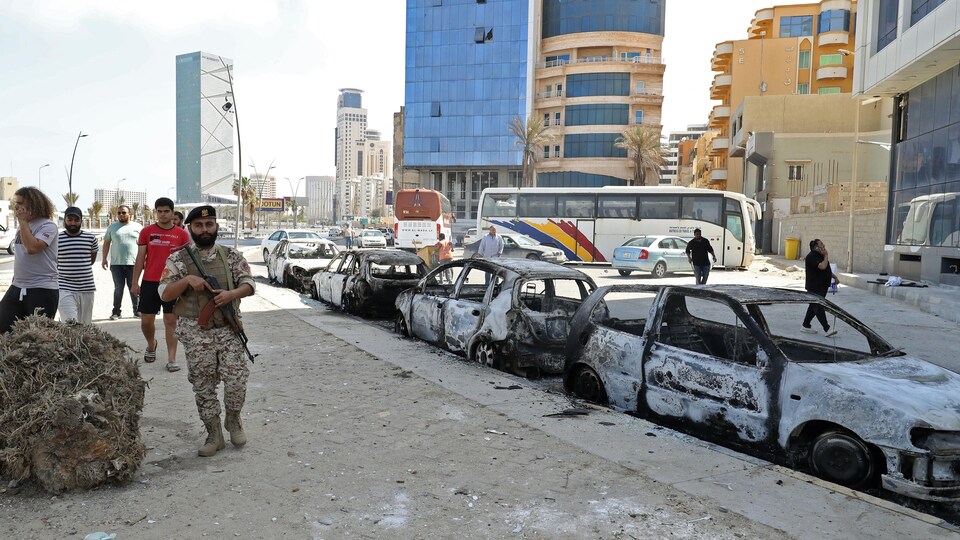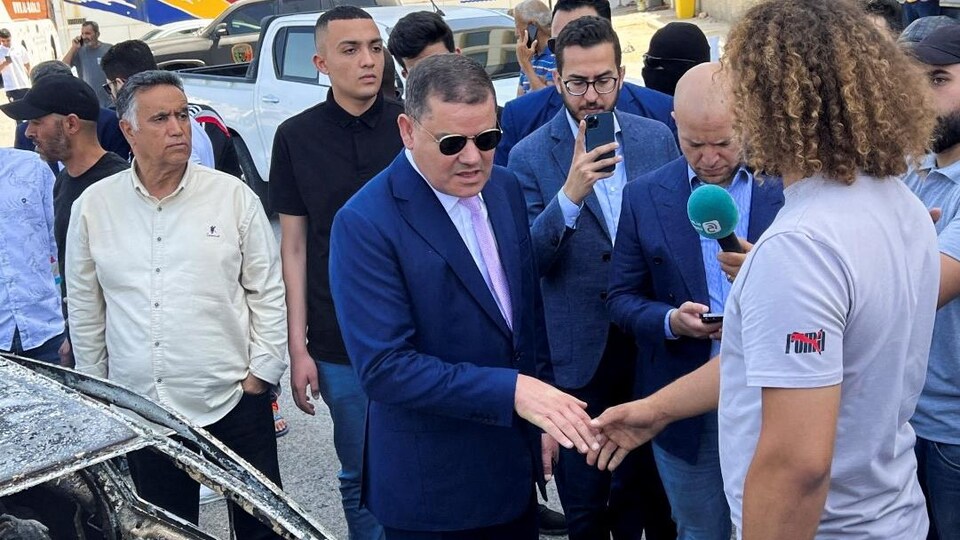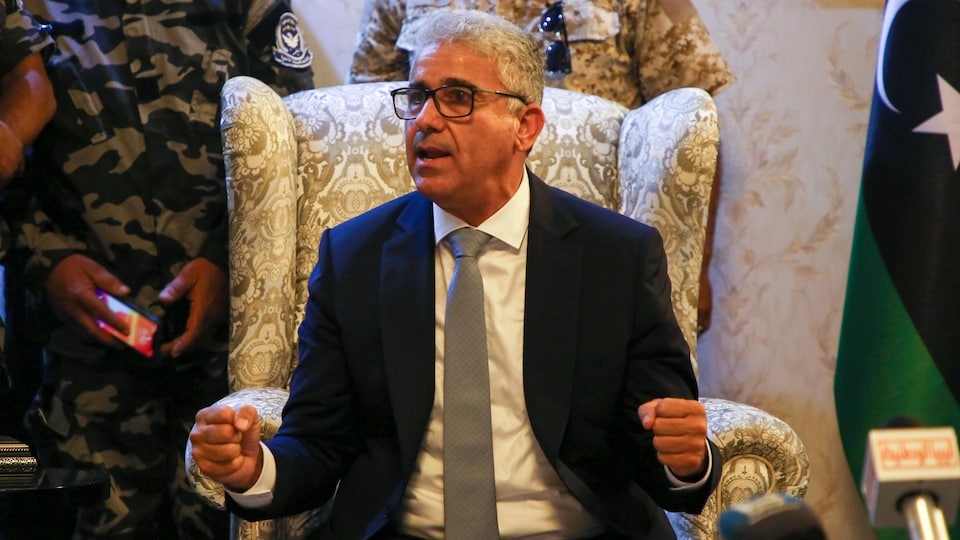The head of the Libyan government, backed by Marshal Khalifa Haftar, withdrew from the capital Tripoli on Tuesday after trying to oust a rival executive from office, at the cost of several hours of fighting between armed groups.
These clashes have been on an unprecedented scale in Tripoli since Mr. Haftar’s attempt by Mr. Haftar, the strongman of the East, to seize the capital by force failed in June 2020. And they are symptoms of the unrest that has plagued Libya since the fall of Muammar Gaddafi’s regime in 2011.
Clashes between rival militias began overnight after the arrival in Tripoli (west) of parliament -appointed prime minister sitting in the east of the country, Fathi Bachagha, accompanied by several ministers, according to an AFP correspondent. in the square.
After several hours of fighting, Mr. Bachagha’s press office said in a statement that he and his ministers had left Tripoli to maintain security […] citizens.
Mr. Bachagha, who was invested by Parliament in March, intended this unexpected coup to take office in Tripoli despite the refusal of the current executive, led by Abdelhamid Dbeibah, to relinquish power before the holding elections.
The ballot originally scheduled for December has been postponed sine die.
The Dbeibah government denounced in a press release a desperate attempts to sow fear and chaos among the localsurges the international community to condemn these actions.
It was not immediately known whether these fights resulted in casualties.
In the Tripoli region, the two rival camps have the support of armed groups that are still very influential in the west of the country, but there are changing allegations. Al Nawasi |a major militia in the capital, gave support to Mr. Bachagha.
According to Libyan media, Mr. Bachagha’s departure from the capital was decided during a mediation led by an army brigade loyal to the Tripoli government to end the fighting.
The international community is concerned
Arab League Secretary General Ahmed Aboul Gheit said very worriedcalls for respect for the ceasefire prevent the outbreak of a new wave of violence in Libya.
The Special Adviser to the UN Secretary -General on Libya, Stephanie Williams, called for confinementhighlighting on the absolute necessity of avoiding any provocative action.
Said the United States very worried through armed clashes in Tripoli.
And the head of European diplomacy Josep Borrell refers to a situation be very serious in the last hours. Sooner or later, when there are two governments, they fight.
After the guns went silent, Mr. Dbeibah toured the capital, according to pictures released by televisions showing him near burning vehicles and damaged buildings.
According to his government, security forces will hunt all involved here cowardly act.
Since 2011, Libya, a vast country of seven million people, has been plagued by divisions between competing institutions in the East and West and by instability.
Oil production, the country’s main source of income, has become hostage to political divisions, with a wave of forced closures of oil sites in recent weeks.
Considered close to the East camp, the groups behind the blockades are demanding a transfer of power to Mr Bachagha as well as a better distribution of oil revenues.
Between 2014 and 2021, the country already found itself in two rival governments in the East and West.
But this time, Mr Bachagha, himself a heavyweight in the West, decided to ally with Khalifa Haftar and the East-based Speaker of Parliament, Aguila Saleh, on behalf of national reconciliation.
Source: Radio-Canada


